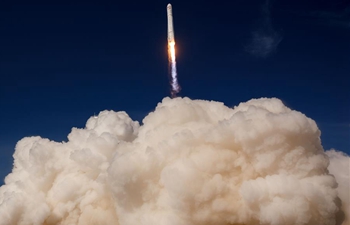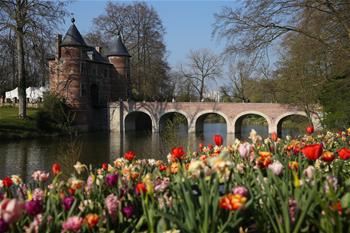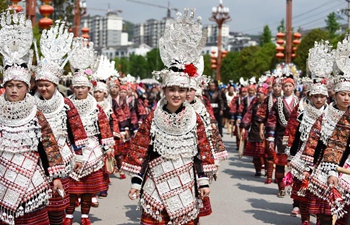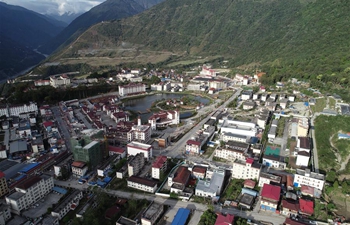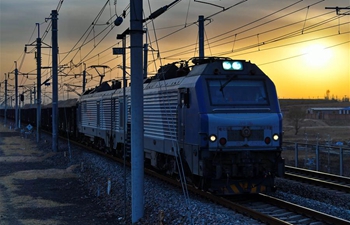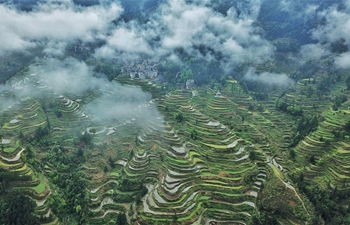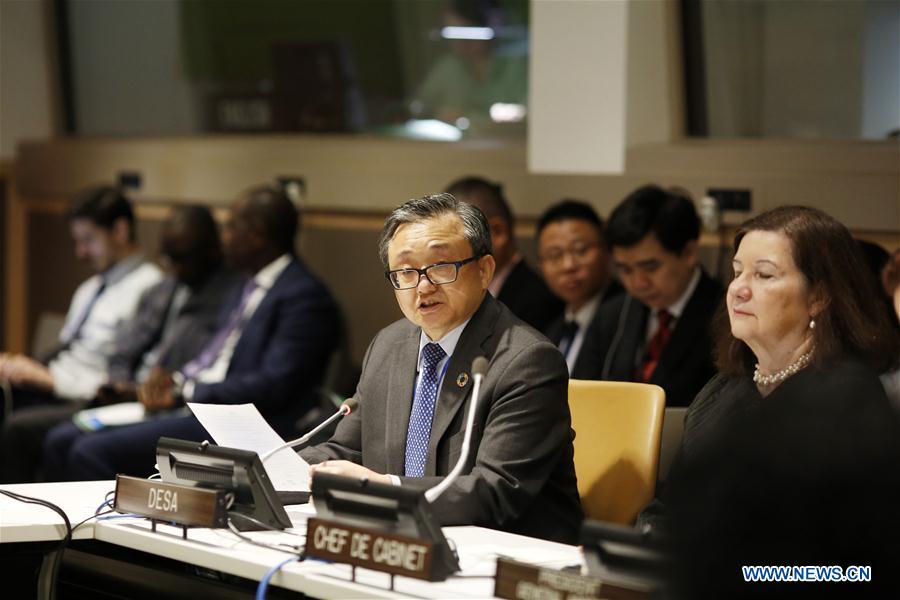
Liu Zhenmin (L front), United Nations Under-Scretary-General for Eeconomic and Social Affairs, addresses a a high-level meeting on Juncao technology, at the UN headquarters in New York, April 18, 2019. Speaking at a high-level meeting, Liu Zhenmin said Juncao helps preserve and protect the environment and the fragile ecosystems. (Xinhua/Li Muzi)
UNITED NATIONS, April 18 (Xinhua) -- China's technology of Juncao, which is famed as a "miracle" grass and has found its way into over 100 countries, is contributing to the achievement of the sustainable development goals (SDGs), said a senior UN official here Thursday.
Speaking at a high-level meeting, Under-Scretary-General for Economic and Social Affairs Liu Zhenmin said Juncao helps preserve and protect the environment and the fragile ecosystems.
For example, from China's Qinghai-Tibet Plateau, the Yellow River Basin, to the upstream riverbanks of the Nile River and the South African Plateau, Juncao technology has been used to combat land degradation and desertification, conserve water, and restore and maintain soil fertility, Liu said.
Jun means fungi, or mushroom, and Cao means grass. These two ordinary components put together give rise to an extraordinary means of production and means of sustainable livelihoods, as well as a powerful tool for ecosystem protection, he said.
Juncao grass has been used for mushroom production, for animal feed, and for biomass fuel, contributing to progress in achieving SDG2 on sustainable agriculture, SDG6 on water, SDG7 on sustainable energy and SDG15 on ecosystems, Liu said.
The overall economic benefits help advance progress on SDG1 on poverty alleviation, SDG8 on growth, and SDG10 on reducing inequality, as many users of the Juncao technology are smallholder farmers, among whom many women farmers, he said.
There are also considerable social benefits from the application of Juncao technology, said the official, as experience shows that the use of Juncao technology helps reduce conflicts over natural resources, as Juncao grass reduces the requirements for fuelwood from forests and pasture land for grazing, thereby contributing to social harmony among local communities.
Juncao technology, developed by Fujian Agriculture and Forestry University of China under the leadership of professor Lin Zhanxi, "is a small idea with proven big potentials," Liu said.
"Through South-South cooperation and SDG17 partnership, we can help scale up and disseminate this technology and its multiple concrete benefits," he added.
The High-Level Meeting of Juncao Technology: Concrete Contribution of the Belt and Road Initiative towards Synergies with the 2030 Agenda for Sustainable Development, is being co-organized by the Chinese government and the UN Department of Economic and Social Affairs.




